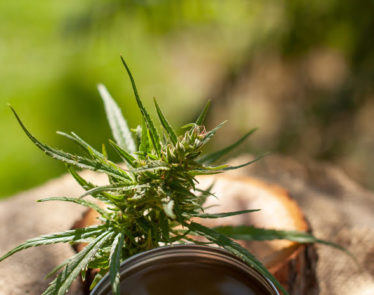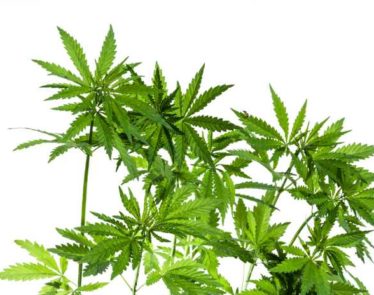
Over the course of the last decade, synthetic marijuana, commonly referred to as 'spice,' has taken hundreds of lives and hospitalized thousands more. Often marketed as a legal alternative to real cannabis, synthetic marijuana is, in fact, not legal, nor is it marijuana.
After several different cases of extreme side effects from the 'designer drug,' concerns have been raised regarding what is driving the need for such a high-risk substance. For many users it may be an issue of legality, as rumors have contended that synthetic marijuana is legal; however, those statements are only rumors, even if these products have been found in your local smoke shop or gas station.
For others, choosing to use synthetic marijuana products is the result of a need to pass a drug test. So, what exactly is synthetic marijuana, and more importantly, what isn't it?
What is Synthetic Marijuana?
In the mid-1980's, funding from the National Institute of Drug Abuse (NIDA) supported medical research completed by John William Huffman. With the intention of better understanding the functional roles of different cannabinoids in the human body, Huffman—a Harvard graduate and professor of organic chemistry at Clemson—synthesized hundreds of innovative 'cannabinoids.'
One of these, JWH-018, he developed in 1995, and his research was published in the Journal of Pharmacology & Experimental Therapeutics in 1998. Fast-forward to 2008 when a German forensic lab detected JWH-018 as an ingredient in 'herbal blends' that were being sold online as a legal 'synthetic marijuana' and termed as 'spice.'
Learning of this development, Huffman responded by simply saying, "Someone opened Pandora's box."
What is Synthetic THC?
Recently, the FDA has approved legal synthetic THC, such as Marinol, for certain AIDS patients as well as individuals undergoing chemotherapy treatments.
Marinol, or other synthetic THC medications, should not be confused with synthetic cannabinoids such as JWH-018. This article is not referring to any legal medication that the FDA has approved when using the term synthetic marijuana or synthetic cannabis.
Instead, the focus of this article is on fake weed and fake marijuana products that are in no way derived from marijuana and that are not FDA approved. Some brand names include K2 and Spice, while a variety of other companies are manufacturing similar products as well.
What are Synthetic Cannabinoids?
These synthetic cannabinoid manufacturers regularly change out the ingredients, trying to maintain legality. Synthetic marijuana products tend to consist of a variety of chemicals that interact with our endocannabinoid system.
In the same way that THC, the psychoactive ingredient in natural marijuana, attaches to our CB1 receptors, synthetic cannabinoids can also bind here. There are however a lot of differences between how natural cannabinoids and synthetic cannabinoids interact with our bodies. This is partially because synthetic cannabinoids are not cannabis products.
How is Synthetic Marijuana Manufactured?
The lack of regulation on the production of synthetic cannabinoids makes it very difficult to determine how any specific product is made, or even what might be in it. Most synthetic cannabinoid blends are developed in clandestine labs throughout Asia. Those blends are then shipped to the United States, typically from China, to manufacturers who will prepare them through a 'reverse-extraction' process.
During this process, the synthetic cannabinoids are dissolved with a high-proof alcohol or acetone solvent. Then, that mixture is infused into a plantlike material, which will act as a host for the synthetic molecules. The infusion process is handled differently depending on the manufacturer; some use a soaking process while others have implemented a spraying technique.
These methods are highly untested and therefore can lead to unexpected results. If the solution of solvent and synthetic cannabinoid is not properly mixed or if the mixture is unevenly sprayed, the final product can have varying potency throughout each batch. This can lead to extremely dangerous chemical 'hot spots' that can lead an unsuspecting consumer to experience some very dangerous side effects. On the other hand, some areas of a batch may end up with very little of the synthetic material, causing little effect, and in turn, causing the user to consume even more to achieve the desired effect.
Improper labeling and careless manufacturers may not be as concerned with your health as they are about their bottom lines. There is no way to know if the source of any synthetic cannabinoid product is reliable or what the quality of the product is. Is the potency information accurate? What ingredients are included and is it what the label says? Without more established regulation, manufacturers will continue to swap out ingredients to avoid legal issues, and potentially lost sales.
Synthetic Marijuana Products are Not Safe
What is the Potency of Synthetic Cannabinoids?
Studies show that synthetic cannabinoids are more potent than those present in natural plant-derived marijuana, up to 100 times as potent as THC in some cases. This increased potency often invokes extremely severe side effects. In 2015 alone, nearly 10,000 calls were made to poison control centers around the US related to negative effects of synthetic cannabinoid use.
What are the Side Effects of Synthetic Marijuana?
Due to a misconception that synthetic marijuana products will duplicate the effects of natural cannabis, many users are surprised to discover that the list of severe side effects from synthetic cannabinoids is much longer than that of cannabis.
For synthetic marijuana, the list includes blackouts, headaches, kidney damage, psychosis, chest pain, increased heart rate, and vomiting. Mood swings and irritability are also common. Synthetic marijuana products are also highly addictive; individuals who discontinue using spice, even after using the product only a handful of times, may experience severe withdrawal symptoms.
What are the Lethal Consequences of Synthetic Marijuana?
Tragically, use of synthetic cannabis has also led to the deaths of many. In all of history, use of natural cannabis has never caused a lethal overdose. Cannabis has a natural balance of cannabinoids in which some work to counteract the effects of others.
For example, CBD helps to counteract THC, giving users of natural marijuana a more balanced experience. Because synthetic cannabinoids do not have this natural balance and diversity in their composition, it is possible that any amount of them could cause an extreme adverse reaction.
Featured Image: Depositphotos/© karenr













